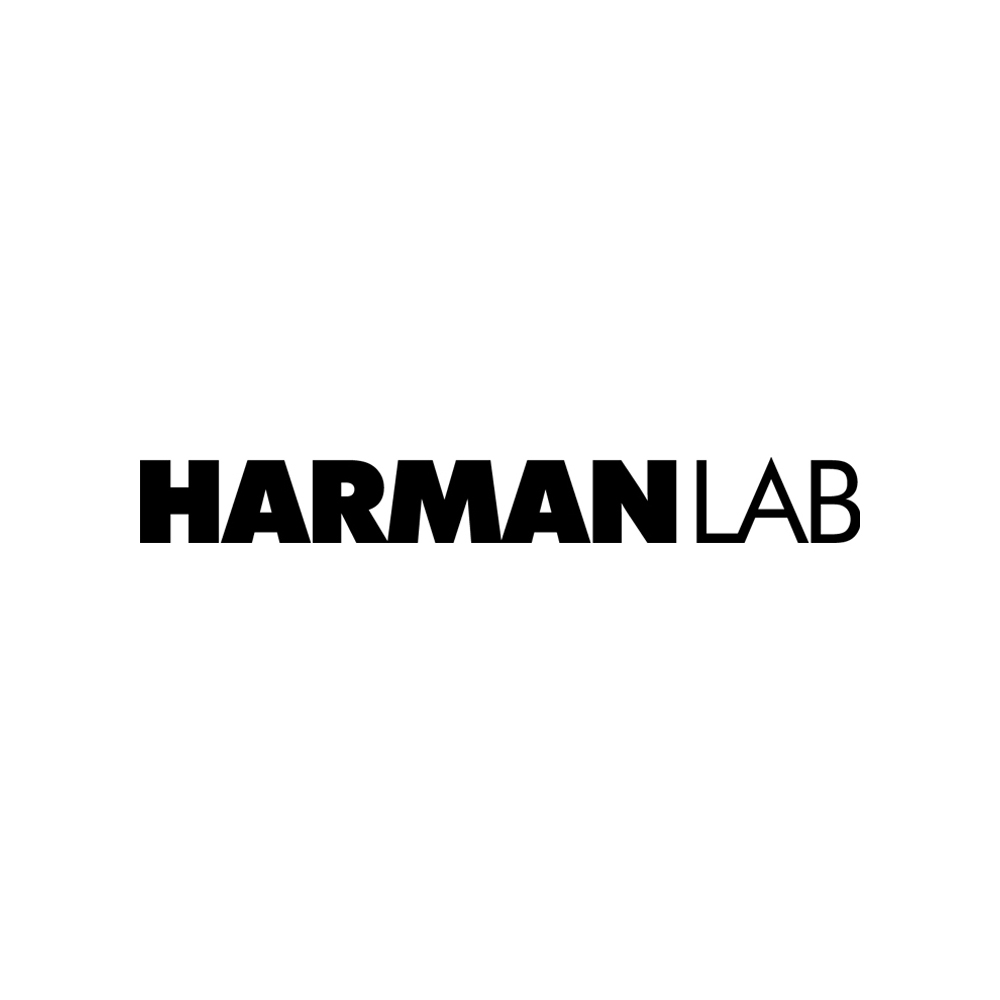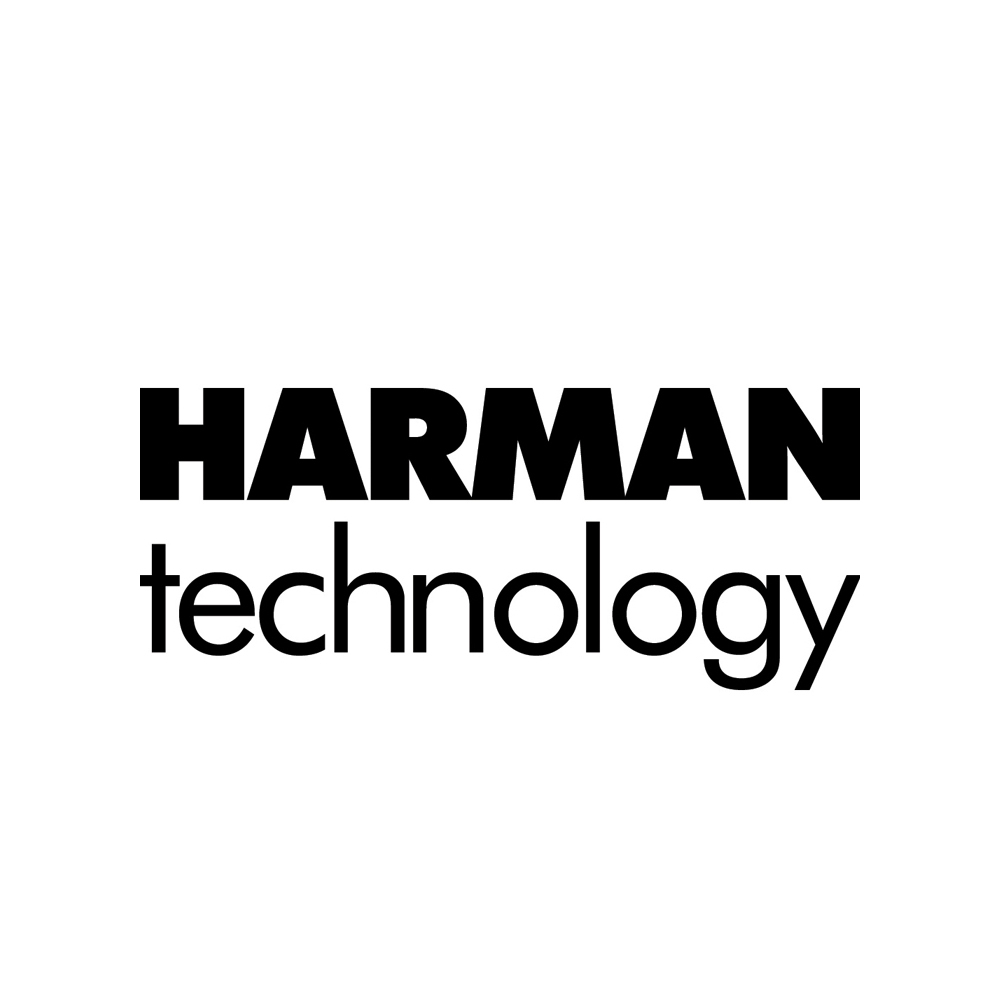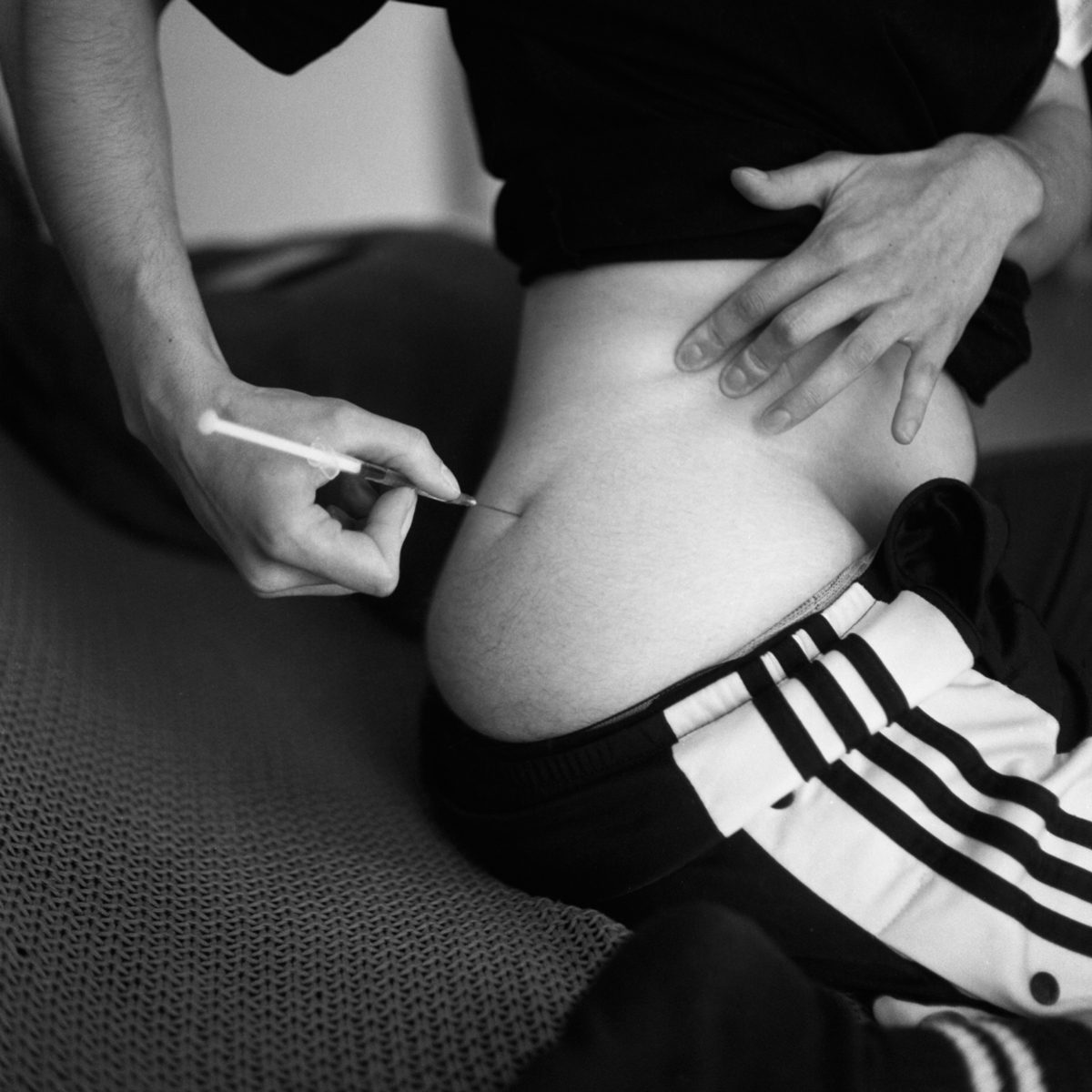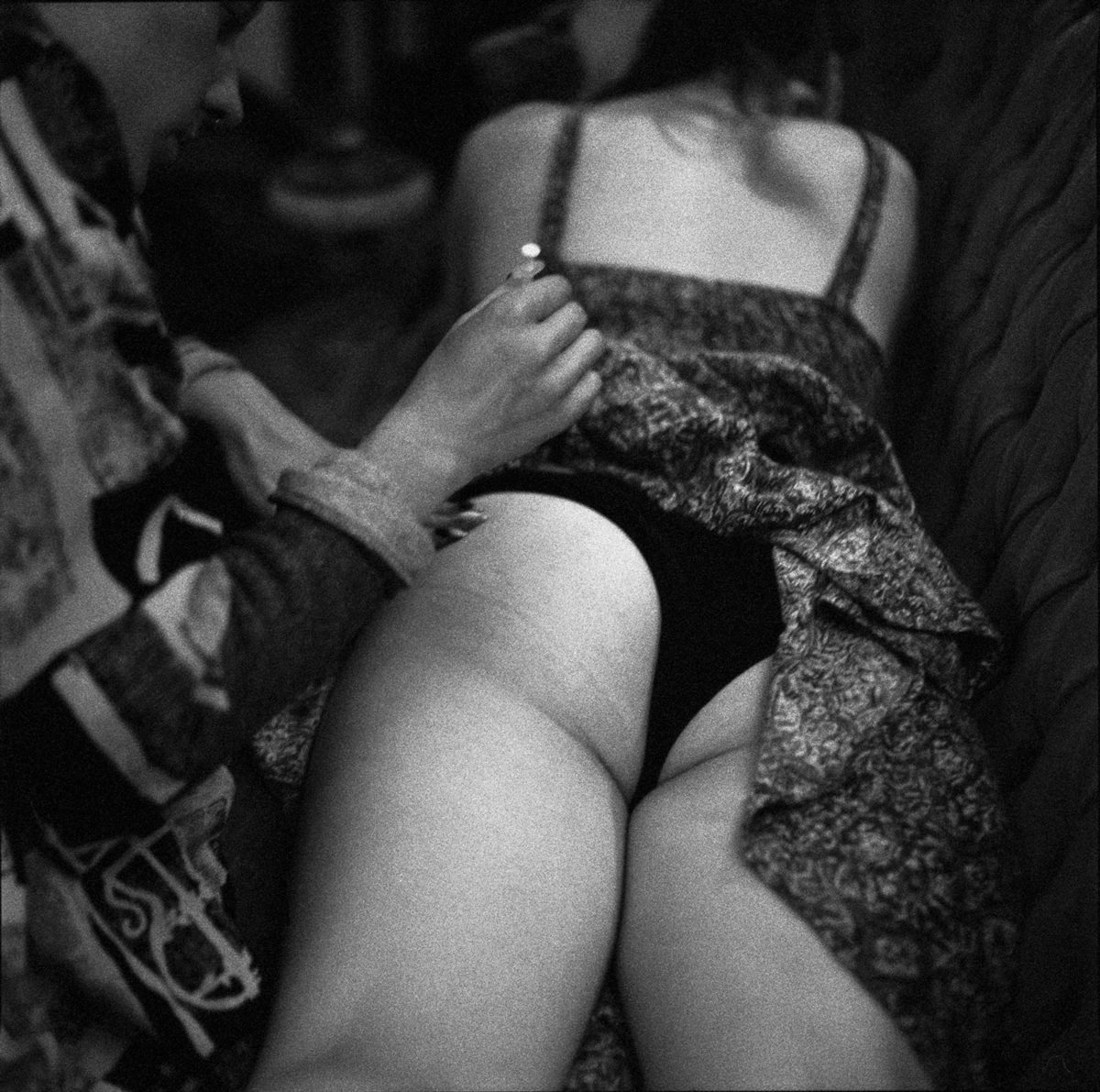Myriade: Photographing trans resistance and intimacy Posted On 10th June 2025 To Magazine, Stories & Portrait

Everything Shifted
I first came to photography as a teenager, experimenting casually with digital cameras. But it wasn’t until after my PhD in cinema studies focused on representations of family in American television, that I returned to it with real intent. Living in Bordeaux at the time, I had occasionally photographed concerts, mostly as a hobby. Then, during the first COVID lockdown, everything shifted. With time slowing down, I picked up my partner’s analog camera and began shooting in the garden, using my roommates as models.
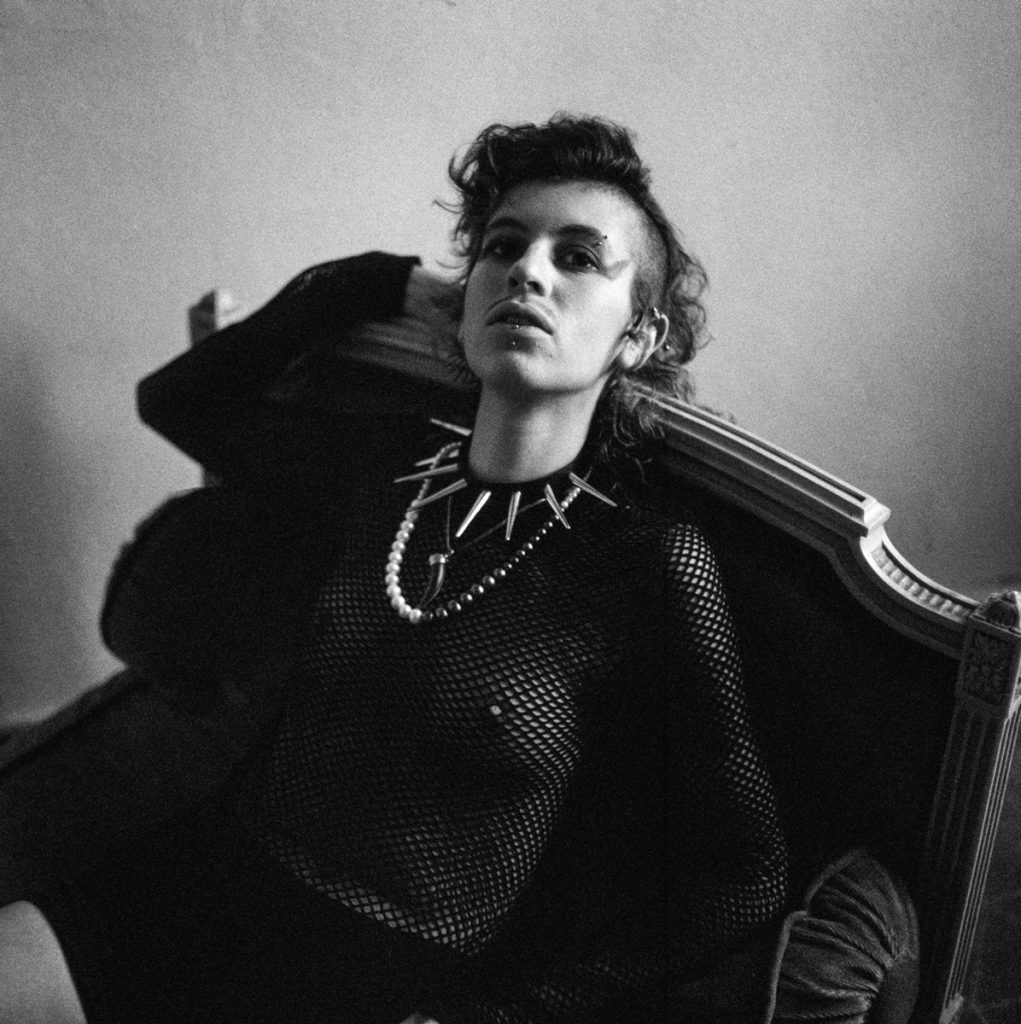
My Eye Evolved
Something clicked. After a few experimental sessions, I bought my own camera, a medium format Mamiya C330. I had fallen in love with the depth, texture, and rhythm of medium format photography. At first, I leaned on my aesthetic references: the theatricality of 1960s and 70s horror cinema, the soft romanticism of Pre-Raphaelite painting. I would stage scenes with carefully selected outfits, props, and lighting. Then gradually, my eye evolved. I began to move away from stylization and toward a more organic, intimate documentary approach, capturing the people around me as they were: women, artists, and especially members of the queer community who had become my chosen family since moving to Lyon.
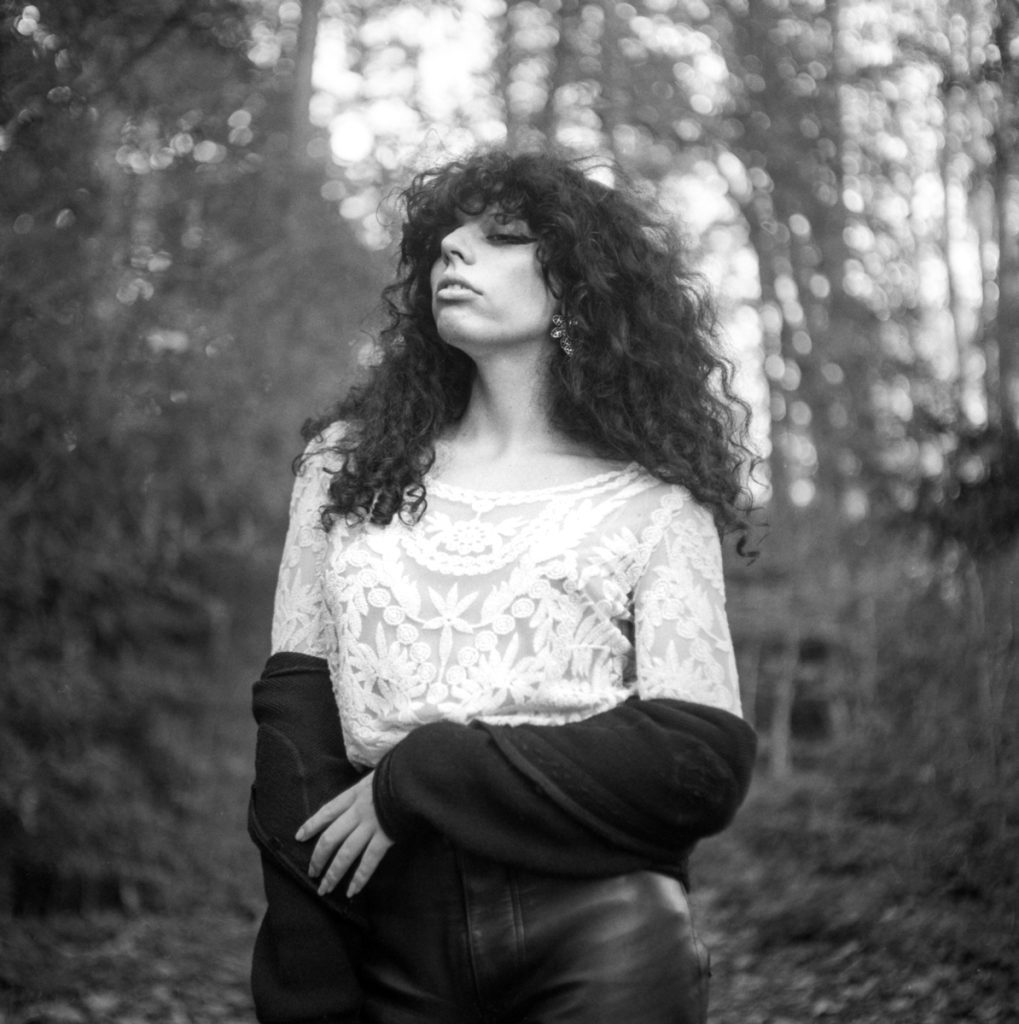
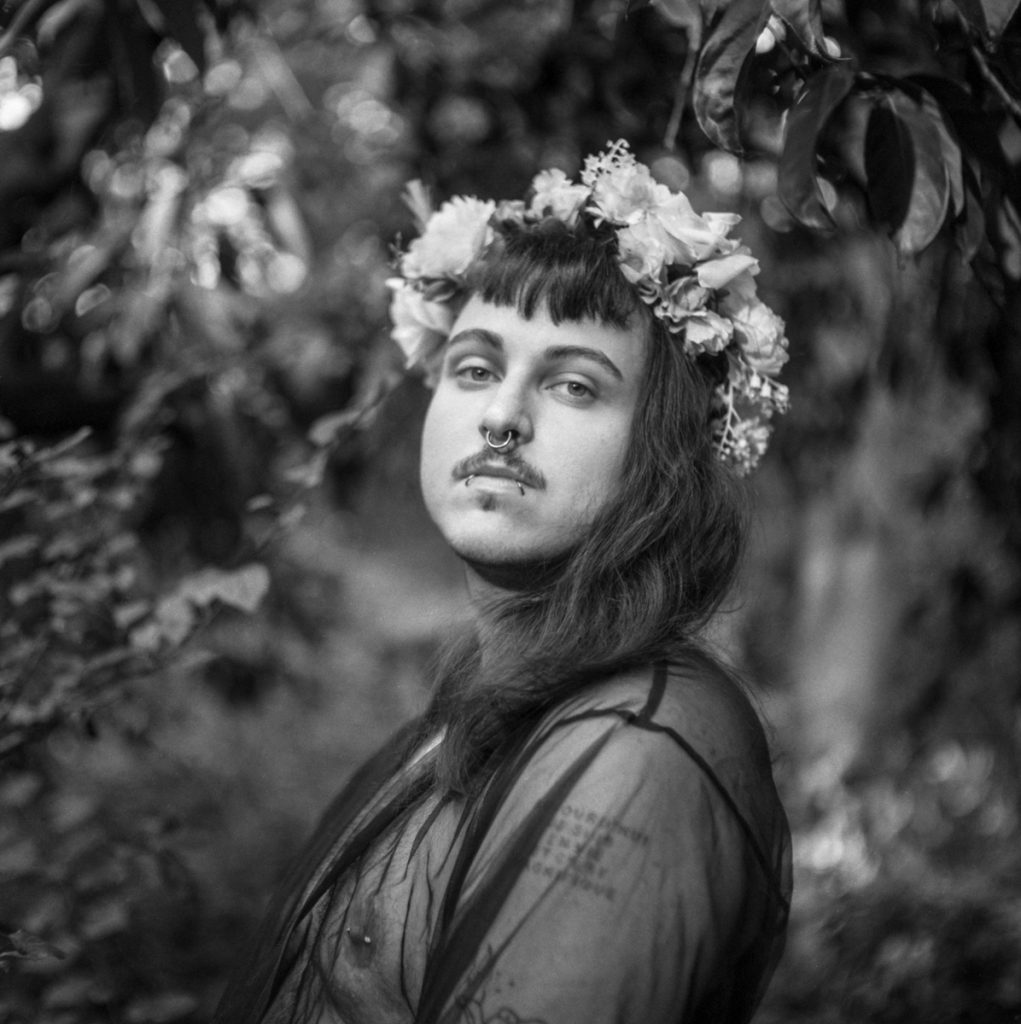
Trans and Queer Lives
That’s how Myriade was born, a portrait series created mostly on ILFORD HP5 Plus and Delta 3200, focusing on trans and queer lives. As a trans person myself, this is not just a documentary project, it is a personal and political gesture: to celebrate, protect, and archive our existences.
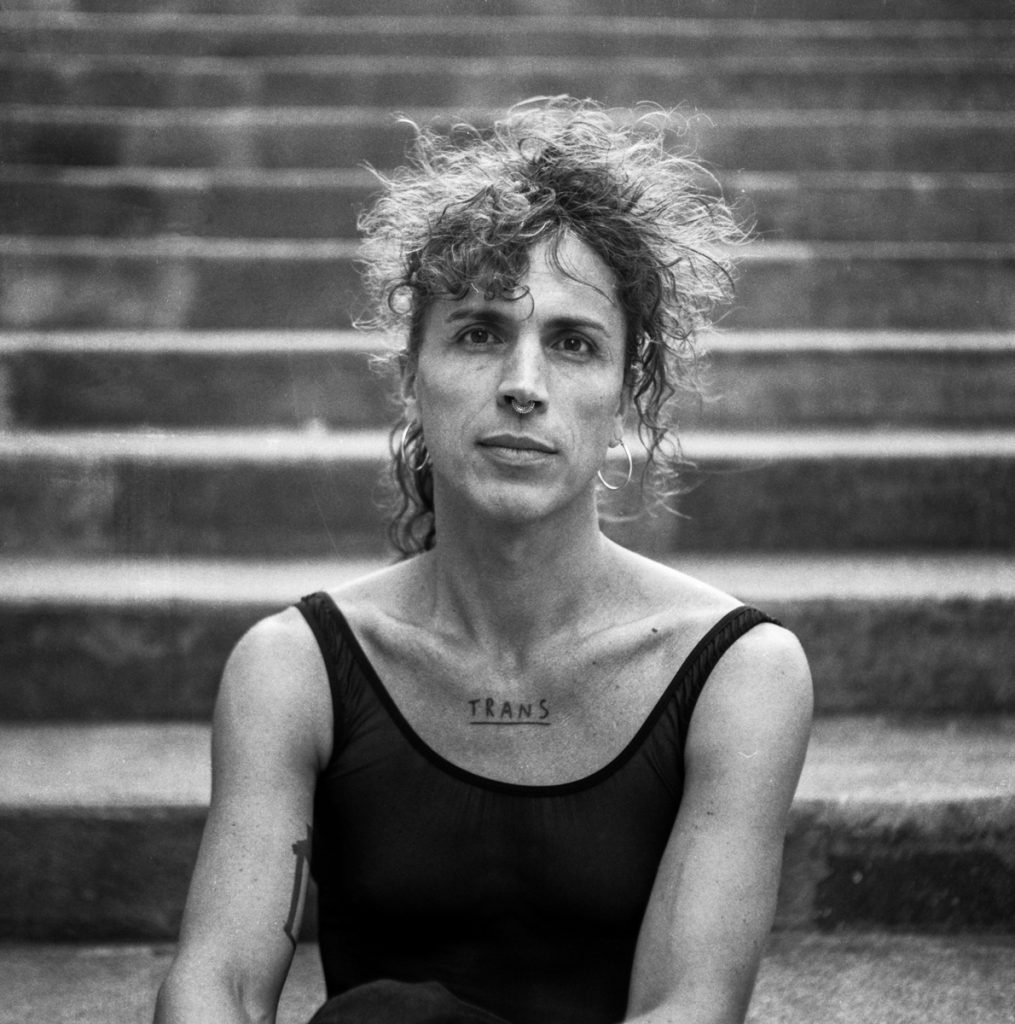
Myriade
The name Myriade speaks to multiplicity, not just of identities, but of experiences, aesthetics, and resistances. These are not images of spectacle or performance, but rather quiet affirmations of presence. I work almost exclusively with natural light, indoors and out. HP5 Plus is my go-to: flexible, reliable, and with a grain that feels just textured enough to honor skin, fabric, and shadow. In low-light conditions, especially in small apartments and nightlife spaces, I turn to Delta 3200. Its deep, expressive grain helps preserve the mood and intensity of the moment.
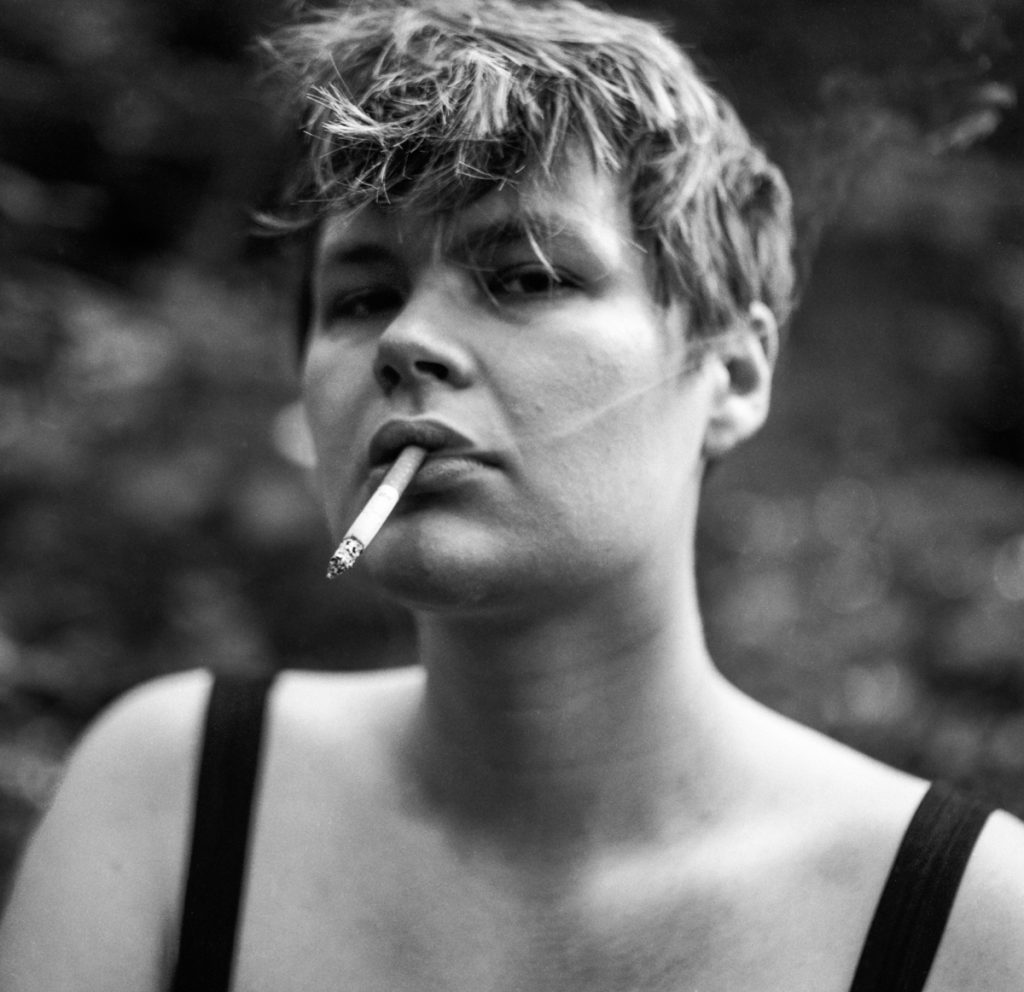
Rooted in Trust
The Mamiya C330 forces a slower pace, and that helps me connect. I never begin with the camera. I begin with time, a walk, a conversation, shared tea, or silence. Asking how the person wants to be seen. Together, we shape the image. There’s no rush. These sessions are often collaborative, intuitive, and above all rooted in trust.
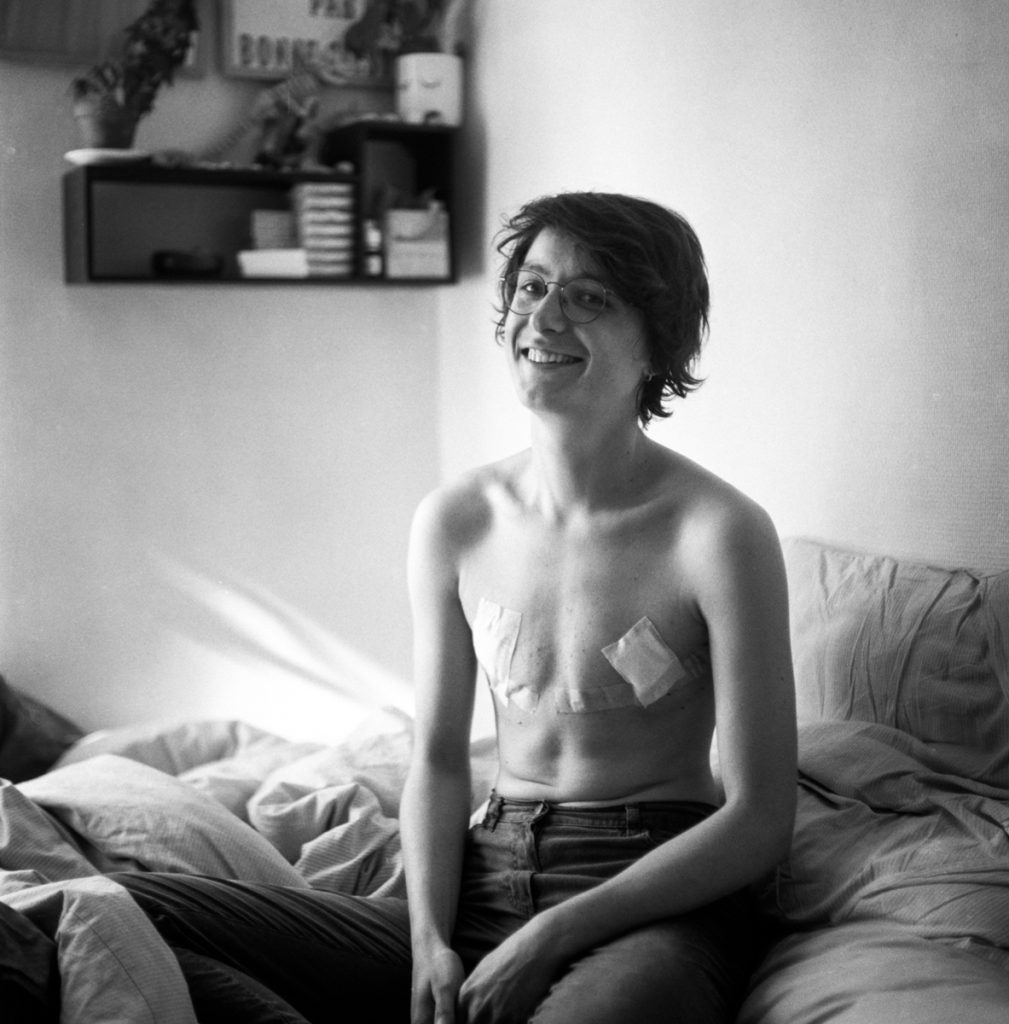
Photography is Not Neutral
In today’s France, where far right discourse is steadily gaining ground, trans people face growing hostility: from political rhetoric, to media sensationalism, to legal rollbacks and direct violence. Public expressions of queer culture face growing backlash and censorship attempts, leading to cancellations and threats, public figures call for our erasure, and misinformation spreads with alarming speed. In this context, choosing to document our lives becomes a radical act. Photography is not neutral; it can reflect power or it can resist it. Myriade belongs firmly in the latter category.
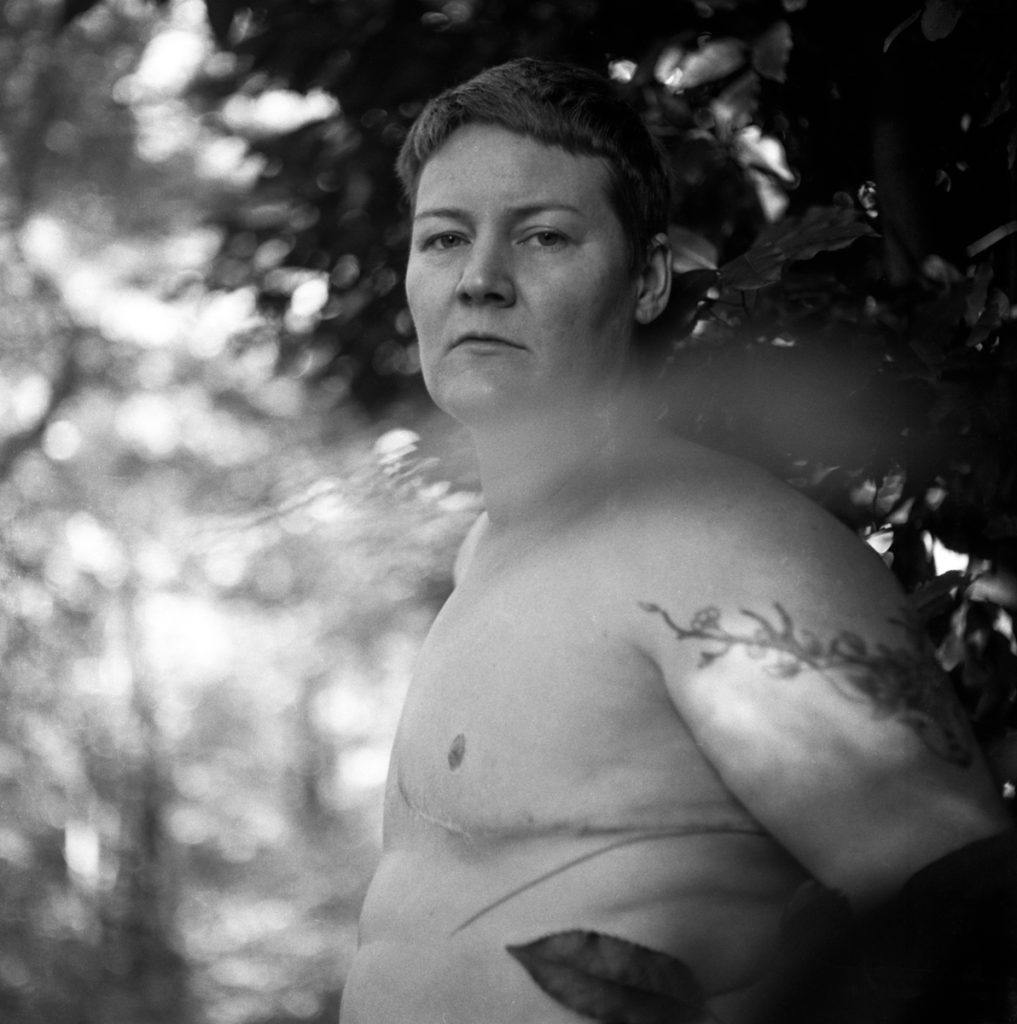
The Camera Becomes a Tool
By placing trans and queer bodies at the center, with dignity, complexity, and nuance, I aim to challenge dominant narratives and offer alternatives to the dehumanizing representations we are so often subjected to. The camera becomes a tool for affirmation, a mirror held up to a community that too often goes unseen or is only seen through a lens of threat or pity. These portraits speak of care, of mutual recognition, of a shared refusal to disappear.
A Collective Portrait of Resistance
To photograph, for me, is to insist on our presence, not only as subjects of struggle, but as whole beings: intimate, powerful, ordinary, and extraordinary. Myriade is a collective portrait of resistance, quiet but unyielding, rendered in silver and grain, thanks to the depth and fidelity of ILFORD films.
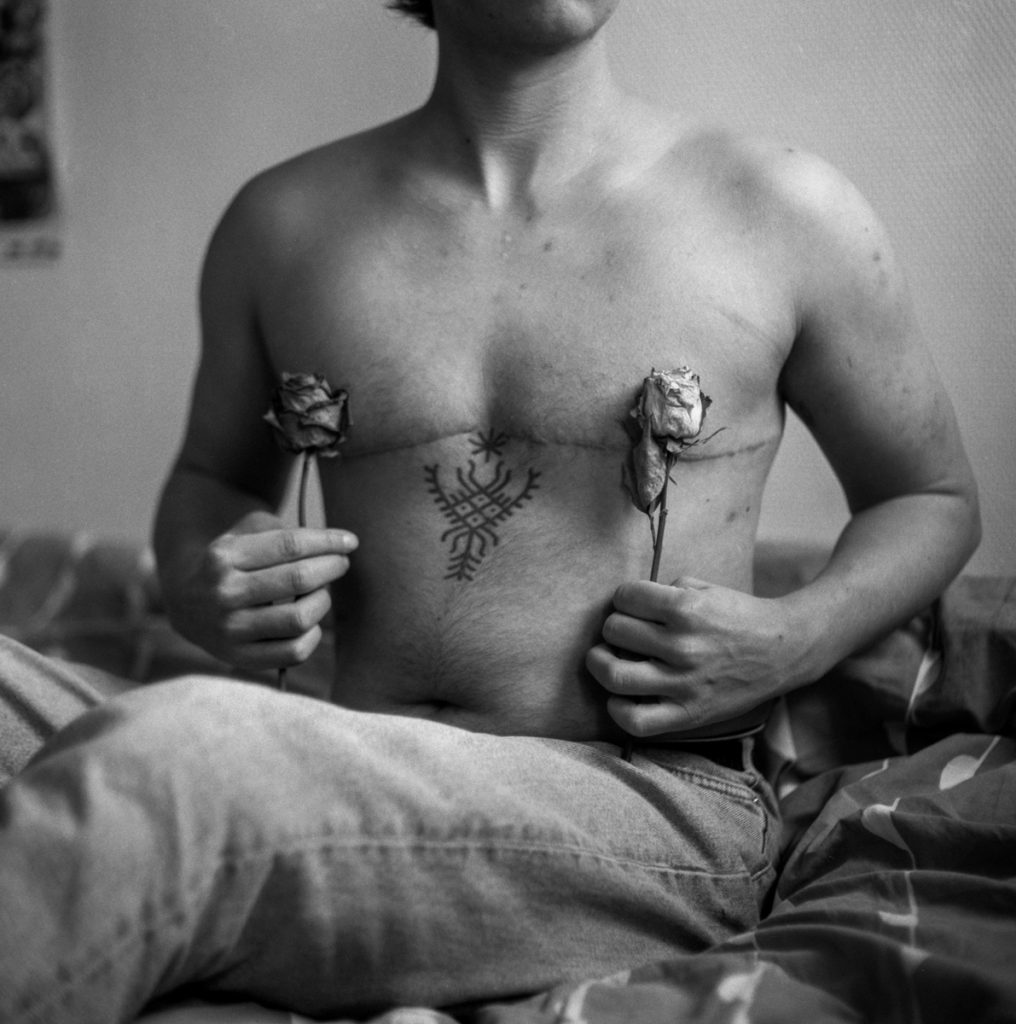
Images ©Jules Mono
About The Author

Jules Mono
Jules Mono is a portrait photographer and DJ based in Lyon. His work explores identity, intimacy, and resistance through medium format analog photography, with a focus on trans and queer lives.
Guided by a deeply collaborative and political approach, he creates intimate portraits that celebrate bodies and emotions beyond normative frames. His practice resists aesthetic and social conformity, inviting viewers to see differently — and to see themselves differently.
He is the founder of Collectif Suture, a queer cultural platform dedicated to amplifying underrepresented voices through exhibitions, concerts, and local events. As a DJ, his selections — heard everywhere from Pride afterparties to underground venues like Grrrd Zero — weave together dark, punk, and hyperpop influences into cathartic soundscapes.
At the crossroads of visual art and queer activism, Jules Mono crafts alternative narratives rooted in care, rage, and joy.



